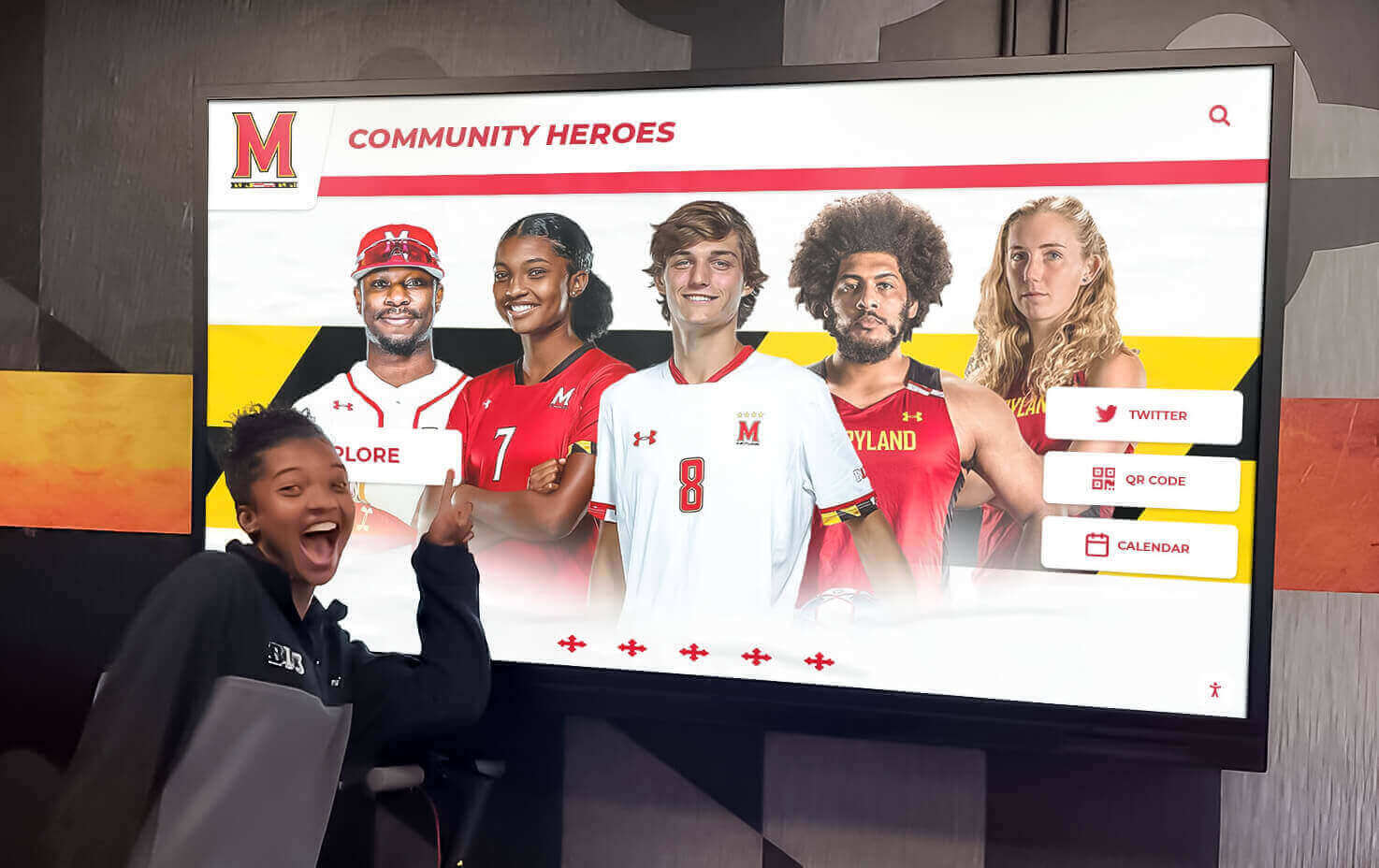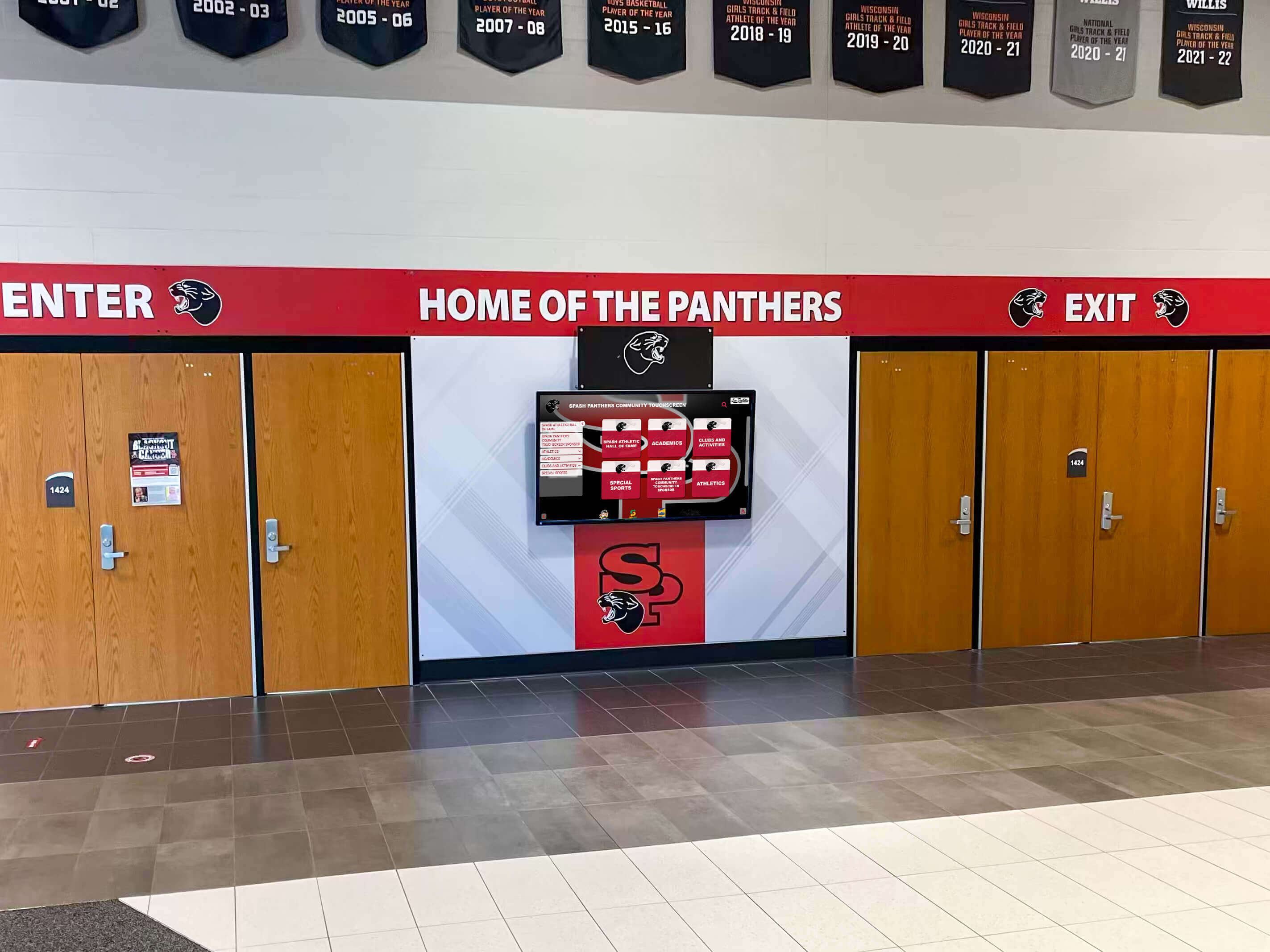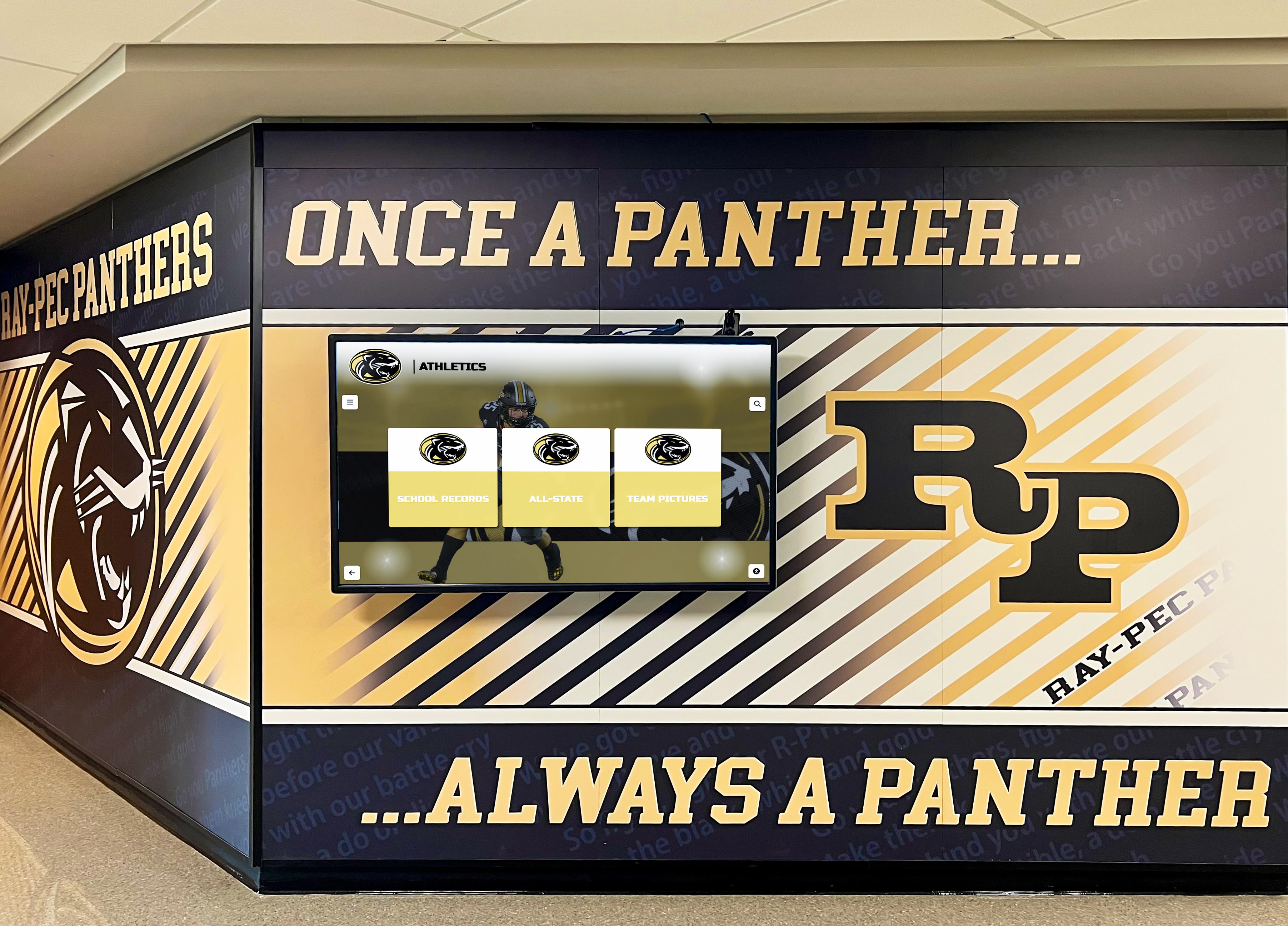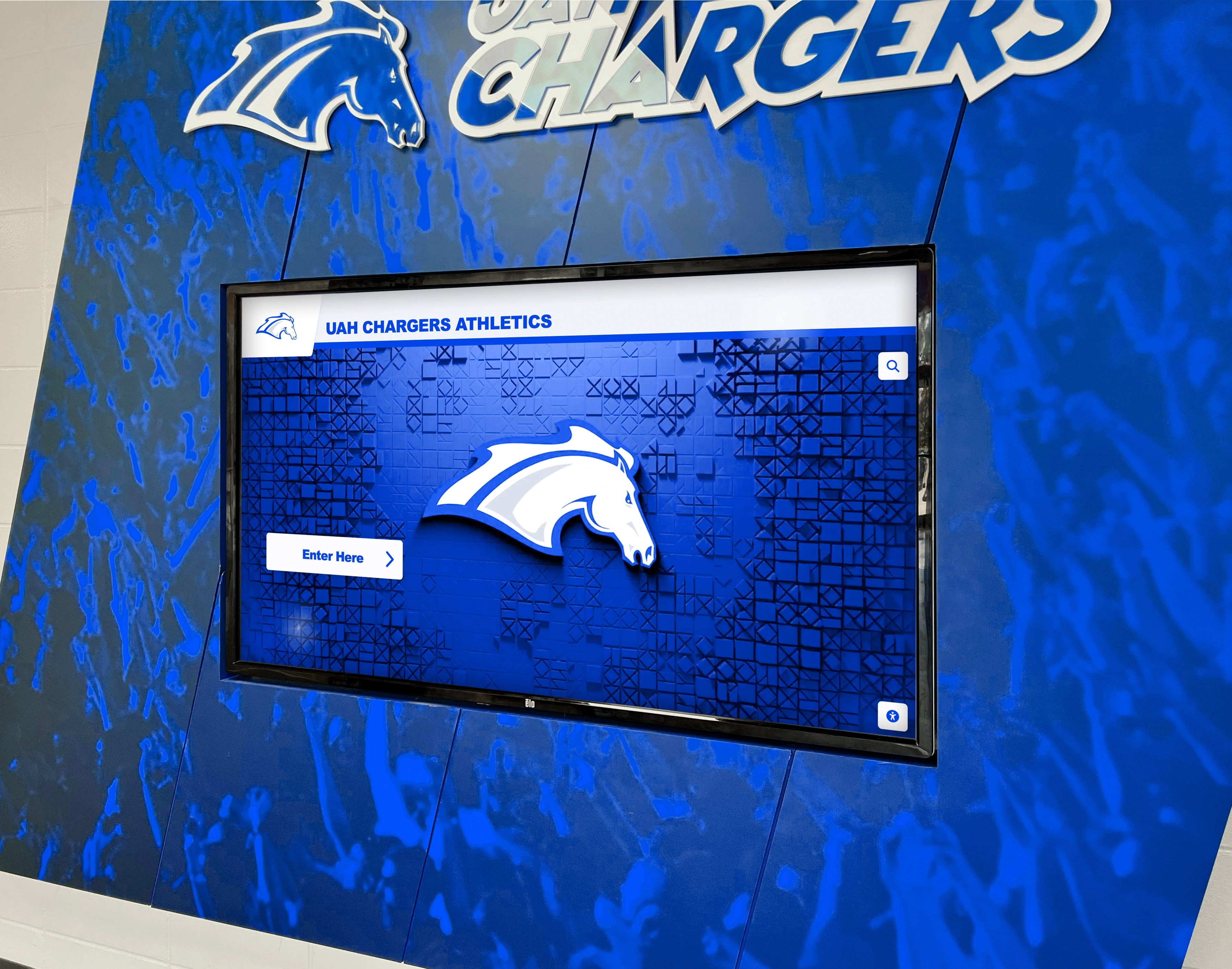The 2011 Stanley Cup Finals represented one of hockey’s most dramatic championship quests, as the Boston Bruins ended a 39-year title drought by defeating the Vancouver Canucks in a thrilling seven-game series. After finishing the regular season as a respectable but unspectacular team, the Bruins transformed into playoff dominators through exceptional goaltending, suffocating defense, and timely scoring. The championship validated years of patient team building and delivered joy to generations of Bruins fans who had waited nearly four decades to celebrate hockey’s ultimate prize.
Whether you’re a Bruins fan, hockey enthusiast, or an organization seeking to celebrate championship excellence and team achievement, understanding the 2011 Bruins championship provides timeless lessons about perseverance, team defense, goaltending excellence, and the determination required to capture hockey’s ultimate prize.

Building the Championship Roster: The Road to 2010-11
The 2011 championship team resulted from years of patient roster construction combining smart drafting, key free agent acquisitions, and strategic trades.
The Peter Chiarelli Era Begins
When Peter Chiarelli became Bruins general manager in May 2006, he inherited a franchise that had missed the playoffs for two consecutive seasons and lacked clear direction. Chiarelli implemented a long-term vision emphasizing size, skill, and character throughout the organization.
Foundational Philosophy:
Size and Physical Play:
- Chiarelli prioritized players combining skill with size and physicality
- The Bruins would be difficult to play against while maintaining offensive talent
- Physical advantages would prove crucial in playoff hockey
- Toughness became an organizational identity throughout all levels
Character and Leadership:
- Draft selections and acquisitions emphasized character as much as talent
- Players who demonstrated leadership and playoff composure received priority
- Team culture focused on accountability and collective commitment
- Veterans who modeled professionalism mentored younger players
Defensive Responsibility:
- Strong defensive play and goaltending formed the championship foundation
- All players carried defensive responsibilities regardless of position
- System emphasized limiting quality chances against
- Defensive excellence would support opportunistic offense
This philosophical approach guided all roster decisions leading to the 2011 championship.
Draft Success: Homegrown Core
The Bruins’ championship roster featured several key players acquired through the draft, demonstrating the importance of development systems.
Patrice Bergeron (2003, 45th Overall):
- Bergeron had already established himself as one of hockey’s premier two-way centers
- His defensive excellence combined with offensive capability
- Leadership and character made him a team cornerstone
- The 2011 playoffs would showcase his complete game at the highest level
David Krejci (2004, 63rd Overall):
- Krejci provided playmaking ability down the middle
- His vision and passing created offense for linemates
- Playoff performance had been inconsistent but showed flashes of brilliance
- The 2011 playoffs would represent his breakthrough on hockey’s biggest stage
Milan Lucic (2006, 50th Overall):
- Lucic embodied the power forward prototype Chiarelli valued
- Size, skill, and physical play made him difficult to defend
- Young age meant his best hockey remained ahead
- Playoff intensity suited his aggressive style
Brad Marchand (2006, 71st Overall):
- Marchand had exceeded draft expectations by developing into a top-line winger
- His agitating style frustrated opponents while contributing offense
- Combination of skill and pest-like tendencies created unique value
- The 2011 playoffs would announce his arrival as an elite performer
These draft selections formed the championship core, demonstrating patient development’s value.

Key Acquisitions and Trades
While draft success provided the foundation, strategic acquisitions completed the championship puzzle.
Zdeno Chara (Free Agent, 2006):
- Chara signed as a free agent in Chiarelli’s first summer as GM
- The towering defenseman brought size, defensive excellence, and leadership
- Named team captain, Chara set the professional standard
- His presence transformed the Bruins’ defensive capabilities
- Physical intimidation and shutdown ability proved invaluable in playoffs
Marc Savard (Trade, 2006):
- Acquired from Atlanta for three draft picks
- Savard provided elite playmaking and power play quarterbacking
- Concussion issues limited his availability by 2010-11
- His absence created opportunities for younger players to contribute
Mark Recchi (Free Agent, 2009):
- The veteran winger signed to provide leadership and experience
- Recchi’s playoff pedigree from multiple Stanley Cup championships proved invaluable
- Professional approach mentored younger teammates
- Clutch performance at age 43 demonstrated sustained excellence
Dennis Seidenberg (Trade, 2010):
- Acquired at the trade deadline in March 2010 from Florida
- Seidenberg’s defensive reliability complemented Chara
- Penalty killing and defensive zone play strengthened team defense
- His steady presence proved crucial in playoff battles
Tyler Seguin (Draft, 2010, 2nd Overall):
- The highly-touted prospect represented future franchise potential
- While contributing modestly in 2010-11, his presence added depth
- Development into a star remained ahead
- His rookie energy provided occasional playoff sparks
These acquisitions complemented draft selections, creating championship-caliber depth throughout the roster.
Claude Julien: The System Coach
Claude Julien had been named head coach in June 2007, bringing defensive structure and systematic excellence that would define Bruins hockey.
Coaching Philosophy:
Defensive Excellence:
- Julien emphasized limiting quality chances against
- All five players shared defensive responsibilities
- Shot blocking and sacrifice became cultural expectations
- Defensive success enabled offensive opportunities through transitions
Line Matching and Deployment:
- Julien maximized favorable matchups through careful line deployment
- The Bergeron line became the ultimate shutdown unit
- Strategic use of last change at home created advantages
- Deep roster enabled fresh legs and matchup flexibility
Player Accountability:
- Every player understood their role and responsibilities
- Consistent healthy scratches enforced system adherence
- Veterans and stars received no special treatment
- Team success outweighed individual statistics or recognition
Julien’s demanding approach created the structured excellence required for playoff success, and the 2010-11 season would validate his methods completely.
Organizations celebrating coaching excellence implement recognition programs honoring leadership’s essential role in championship achievement.

The 2010-11 Regular Season: Respectable but Unspectacular
The Bruins’ championship season featured a solid but unremarkable regular season that provided little indication of the playoff dominance to come.
Regular Season Performance
The Bruins finished the 2010-11 regular season with a 46-25-11 record, earning 103 points and finishing third in the Northeast Division behind Montreal and fourth in the Eastern Conference.
Offensive Statistics:
- The Bruins scored 246 goals in 82 games, ranking 14th in the NHL
- Balanced scoring depth meant multiple players contributed
- No Bruin finished among the league’s top scorers
- Power play performance remained consistent but unspectacular
Defensive Excellence:
- The Bruins allowed just 195 goals, second-fewest in the NHL
- Team defense and goaltending formed the foundation
- Penalty killing operated at elite levels
- Defensive structure created the platform for playoff success
Goaltending Excellence:
- Tim Thomas posted a 35-11-9 record with a 2.00 goals-against average
- His .938 save percentage led all NHL goaltenders
- Thomas won the Vezina Trophy as the league’s best goaltender
- Elite goaltending would prove essential in playoff battles
The regular season demonstrated strong defensive foundations but raised questions about offensive firepower necessary for playoff success.
Key Players and Contributors
Multiple players made significant regular season contributions that would carry into playoff excellence.
Tim Thomas:
- Thomas, at age 36, enjoyed the best season of his career
- Unorthodox style and competitive fire made him unpredictable for opponents
- Mental toughness and confidence inspired teammates
- His Vezina Trophy win validated elite status among goaltenders
Zdeno Chara:
- Chara anchored the defense while contributing offensive production
- His leadership set professional and competitive standards
- Physical presence intimidated opponents and protected teammates
- Norris Trophy finalist recognition highlighted defensive excellence
Patrice Bergeron:
- Bergeron continued demonstrating elite two-way play
- His Selke Trophy consideration recognized defensive excellence
- Offensive production complemented shutdown defensive role
- Versatility enabled success in all situations
David Krejci:
- Krejci posted respectable regular season numbers
- Playmaking ability created chances for linemates
- His best hockey would emerge in playoff pressure
Milan Lucic:
- The young power forward combined physical play with offensive production
- Size and skill made him difficult to defend
- Physical edge raised teammates’ competitiveness
- Playoff style suited his aggressive approach
Brad Marchand:
- Marchand emerged as a legitimate top-line winger
- His pest-like tendencies frustrated opponents
- Surprising offensive ability complemented agitating style
- The playoffs would showcase his complete game
Nathan Horton:
- Acquired from Florida at the 2010 trade deadline
- Horton provided offensive skill and playoff experience
- His contributions would prove crucial until injury struck
The regular season roster featured depth, defensive excellence, elite goaltending, and enough offensive talent to compete—ingredients that would prove sufficient for playoff success.

Entering the Playoffs
The Bruins entered the 2011 playoffs facing the Montreal Canadiens in the first round—a matchup between bitter rivals that would test championship mettle immediately.
Playoff Seeding:
- Boston earned the third seed in the Eastern Conference
- Montreal finished sixth, creating the 3-6 first-round matchup
- The rivalry added intensity to an already pressure-packed situation
- Home ice advantage provided marginal benefit in this emotional series
Expectations:
- Most observers viewed the Bruins as legitimate Cup contenders
- Defensive excellence and elite goaltending provided playoff foundations
- Questions remained about offensive consistency
- The team’s playoff experience from recent years suggested capability
Little did anyone know the dramatic journey awaiting the 2011 Boston Bruins through their championship quest.
First Round: Montreal Canadiens (Won 4-3)
The opening playoff series immediately tested the Bruins’ championship character as they fell behind 2-0 to their hated rivals.
Falling Behind: Games 1 and 2
The series began disastrously for Boston as Montreal capitalized on Bruins mistakes to seize commanding series control.
Game 1: Montreal 2, Boston 0
- Montreal’s Carey Price posted a shutout at TD Garden
- The Bruins generated chances but couldn’t solve Price
- Defensive lapses and special teams struggles cost Boston
- Losing home ice immediately created series pressure
Game 2: Montreal 3, Boston 1
- Montreal dominated in Boston again to take a 2-0 series lead
- The Canadiens’ speed and skill overwhelmed Bruins systems
- Tim Thomas faced heavy criticism after allowing soft goals
- The 2-0 series deficit appeared insurmountable against historical odds
Historical Context:
- Teams leading 2-0 in playoff series win approximately 88% of the time
- No Bruins team had overcome a 2-0 series deficit since 1988
- Montreal’s confidence soared while Boston faced existential questions
- Media speculation about coaching and roster changes began
The Bruins faced elimination and potential summer upheaval unless they could find championship resilience.
The Comeback: Games 3, 4, 5, 6
Rather than collapsing, the Bruins demonstrated the mental toughness that would define their championship run.
Game 3: Boston 4, Montreal 2 (at Montreal)
- The Bruins finally solved Carey Price with four goals
- Physical play intensified as Boston imposed their style
- Tim Thomas rebounded with a strong performance
- The victory provided hope but Montreal still led 2-1
Game 4: Boston 5, Montreal 4 (OT) (at Montreal)
- Nathan Horton’s overtime winner tied the series 2-2
- The dramatic victory shifted momentum completely
- Physical play reached fever pitch as tensions escalated
- The series returned to Boston deadlocked
Game 5: Boston 2, Montreal 1 (at Boston)
- Tight defensive battle saw Boston take series lead
- Tim Thomas delivered when elimination had threatened
- Role players contributed crucial goals
- The Bruins were one win from advancing
Game 6: Montreal 4, Boston 3 (OT) (at Montreal)
- Montreal forced Game 7 with dramatic overtime victory
- The Canadiens’ resilience created ultimate pressure situation
- Game 7 at TD Garden would determine series winner
- Everything came down to one game between bitter rivals
The series had evolved into exactly the type of test championship teams must pass.

Game 7: Boston 4, Montreal 3 (OT)
Game 7 at TD Garden featured everything hockey fans cherish—dramatic momentum swings, incredible goaltending, physical play, and overtime tension.
Game Flow:
Opening Period:
- Nathan Horton scored just 44 seconds into the game, electrifying TD Garden
- The quick goal validated aggressive forechecking strategy
- Montreal answered to tie 1-1 after one period
- Playoff intensity reached maximum levels immediately
Second Period Drama:
- The teams traded goals in dramatic fashion
- Physical play escalated with fights and big hits
- Montreal took a 3-2 lead, threatening Boston’s season
- Tim Thomas made several desperation saves to keep deficit at one
Third Period Pressure:
- The Bruins pressed desperately for the equalizer
- Wave after wave of Boston attacks tested Carey Price
- With time running out, the Bruins pulled Thomas for extra attacker
- Patrice Bergeron tied the game 3-3 with just over seven minutes remaining
- Overtime would decide everything
Overtime Heroics:
- Nathan Horton collected a loose puck in the offensive zone
- His shot beat Carey Price at 5:43 of overtime
- TD Garden erupted as the Bruins advanced to Round 2
- The comeback from 2-0 down demonstrated championship character
The dramatic series victory over Montreal provided confidence and momentum while proving the Bruins could overcome adversity. Programs celebrating playoff success use championship recognition displays documenting dramatic series victories.
Second Round: Philadelphia Flyers (Swept 4-0)
After the emotional Montreal series, the Bruins faced the Philadelphia Flyers—a tough, physical team perfectly suited for playoff hockey.
Dominant Defensive Performance
The Bruins transformed from struggling against Montreal to dominating Philadelphia through suffocating defense and outstanding goaltending.
Game 1: Boston 7, Philadelphia 3 (at Philadelphia)
- The Bruins shocked the Flyers with an offensive explosion
- Seven goals represented the highest-scoring game of Boston’s playoff run
- Physical dominance established series tone
- Stealing Game 1 in Philadelphia provided massive advantage
Game 2: Boston 3, Philadelphia 2 (OT) (at Philadelphia)
- Close defensive battle saw Boston prevail in overtime
- The 2-0 series lead after two road victories effectively ended the series
- Philadelphia’s confidence disappeared after surrendering home ice
- Tim Thomas continued spectacular goaltending
Game 3: Boston 5, Philadelphia 1 (at Boston)
- The Bruins dominated physically and on the scoreboard
- Philadelphia appeared demoralized and unable to generate offense
- One victory from advancing to the Conference Finals
- The sweep appeared inevitable
Game 4: Boston 5, Philadelphia 1 (at Boston)
- The Bruins completed the sweep with another dominant performance
- Philadelphia managed just 9 goals in the entire series
- Tim Thomas was nearly unbeatable, posting a 1.16 GAA in the series
- The Bruins advanced to face Tampa Bay in the Eastern Conference Finals
The Philadelphia sweep demonstrated that the Bruins had discovered championship-level playoff hockey combining defensive excellence, goaltending brilliance, and timely scoring.

Eastern Conference Finals: Tampa Bay Lightning (Won 4-3)
The Conference Finals against Tampa Bay featured one of the most thrilling Game 7s in recent playoff history.
Series Overview
Tampa Bay provided a stern test with speed, skill, and their own elite goaltender in Dwayne Roloson.
Series Structure:
- The series alternated victories through the first six games
- Neither team could establish control or momentum
- Game 7 at TD Garden would determine who advanced to the Stanley Cup Finals
- Both teams demonstrated championship-caliber play throughout
Key Storylines:
- Tampa Bay’s speed tested Boston’s defensive structure
- Steven Stamkos and Martin St. Louis led dangerous Lightning offense
- Goaltending duels between Thomas and Roloson defined close games
- Physical play escalated as stakes increased
Game 7: Boston 1, Tampa Bay 0
The deciding game featured one of the most dominant goaltending performances in playoff history as Tim Thomas posted a shutout in the most pressure-packed situation imaginable.
Game Narrative:
Scoreless Through Two Periods:
- Neither team could solve the opposing goaltender
- Tim Thomas made spectacular save after spectacular save
- Dwayne Roloson matched Thomas at the other end
- Every shot carried potential to decide the series
- Tension reached unbearable levels as scoreless tie continued
Third Period Drama:
- Nathan Horton scored the game’s only goal at 12:27 of the third period
- The 1-0 lead provided thin margin for error
- Tampa Bay pressed desperately for the equalizer
- Thomas denied every Lightning attempt with acrobatic saves
- The final minutes felt eternal as Boston protected the lead
Clinching the Eastern Conference:
- The final horn sounded with Boston leading 1-0
- Tim Thomas had stopped all 24 Tampa Bay shots for the shutout
- The Bruins celebrated advancing to the Stanley Cup Finals
- Nathan Horton’s goal and Thomas’s brilliance had delivered the Eastern Conference championship
The Game 7 victory demonstrated the championship mettle that defined the 2011 Bruins. When facing the ultimate pressure, they delivered their most complete defensive performance.
Organizations celebrating goaltending excellence implement athletic recognition programs honoring legendary individual performances that deliver championships.

Stanley Cup Finals: Vancouver Canucks
The Bruins faced the Vancouver Canucks—the Presidents’ Trophy winners as the NHL’s best regular season team—in a Finals series that would produce one of hockey’s most dramatic conclusions.
Vancouver: The Regular Season Powerhouse
The Canucks entered the Finals as favorites based on their dominant regular season and balanced roster.
Canucks’ Strengths:
- Finished with 117 points, best in the NHL
- Elite offense led by Sedin twins and Ryan Kesler
- Roberto Luongo provided elite goaltending
- Deep roster with scoring throughout lineup
- Home ice advantage throughout playoffs
Series Expectations:
- Most analysts favored Vancouver based on regular season dominance
- The Canucks had home ice advantage
- Boston’s grinding style contrasted with Vancouver’s skilled approach
- The series promised contrasting philosophies and intense competition
Games 1 and 2: Vancouver Takes Control
The series opened in Vancouver with the Canucks seizing control just as Montreal had done in Round 1.
Game 1: Vancouver 1, Boston 0
- Roberto Luongo posted a shutout in the opener
- The Bruins generated chances but couldn’t solve Luongo
- Vancouver’s speed created problems for Boston’s defense
- The home ice victory gave Vancouver momentum
Game 2: Vancouver 3, Boston 2 (OT)
- Vancouver took a commanding 2-0 series lead with overtime victory
- Alexandre Burrows scored in overtime after controversial finger-biting incident
- Boston faced familiar 2-0 series deficit
- History suggested Vancouver’s series lead was nearly insurmountable
- The Bruins needed to find championship resilience once again
The 2-0 series deficit tested whether Boston had learned from the Montreal series or if Vancouver was simply better.
Games 3 and 4: Boston Roars Back
Rather than panicking, the Bruins returned to Boston and delivered two of their most dominant playoff performances.
Game 3: Boston 8, Vancouver 1 (at Boston)
- The Bruins absolutely destroyed Vancouver in the most lopsided Finals game in decades
- Eight goals represented complete offensive explosion
- Physical dominance intimidated the Canucks
- Roberto Luongo was pulled after allowing four goals
- The message was clear—Boston would not surrender easily
Game 4: Boston 4, Vancouver 0 (at Boston)
- Tim Thomas posted a shutout to tie the series 2-2
- The Bruins’ defensive excellence suffocated Vancouver’s offense
- Physical play continued escalating
- The series was deadlocked heading back to Vancouver
The dramatic turnaround demonstrated the Bruins’ championship character and resilience. Two road victories in Vancouver would decide the Stanley Cup champion.

Games 5 and 6: Vancouver Regains Home Ice
The series returned to Vancouver where the Canucks regained control and pushed Boston to the brink.
Game 5: Vancouver 1, Boston 0
- Low-scoring defensive battle saw Vancouver retake series lead
- Maxim Lapierre’s controversial goal stood as the game-winner
- The Bruins generated chances but Luongo stood tall
- Vancouver led the series 3-2 and could clinch at home in Game 6
Game 6: Boston 5, Vancouver 2 (at Vancouver)
- Facing elimination, the Bruins delivered when their season was on the line
- Brad Marchand scored twice to lead Boston’s offense
- Tim Thomas again provided spectacular goaltending
- The victory forced Game 7 at TD Garden
- Everything would be decided in one final game in Boston
The Bruins’ resilience in elimination games throughout the playoffs had brought them to hockey’s ultimate stage—Game 7 of the Stanley Cup Finals at home.
Game 7: Boston 4, Vancouver 0 (at Boston)
June 15, 2011—the date when the Boston Bruins ended their 39-year Stanley Cup drought with one of the most dominant Game 7 performances in Finals history.
Pre-Game Atmosphere:
TD Garden Electricity:
- The sold-out crowd created deafening atmosphere
- Bruins fans understood they might witness history
- Generations of fans who had waited decades filled the building
- Players felt the weight of expectation and opportunity
- Vancouver faced hostile environment on hockey’s biggest stage
Historical Context:
- The Bruins hadn’t won the Cup since 1972—39 years earlier
- No team had won Game 7 on home ice since 2006
- Tim Thomas would face his ultimate test
- One game would determine which team achieved hockey immortality

First Period Dominance:
From the opening faceoff, the Bruins established physical and territorial dominance that Vancouver couldn’t answer.
- Patrice Bergeron scored at 14:37 to give Boston a 1-0 lead
- The goal released enormous tension and electrified TD Garden
- Brad Marchand added a second goal at 17:35 to extend the lead to 2-0
- Vancouver appeared overwhelmed by Boston’s intensity and TD Garden’s atmosphere
- The Bruins led 2-0 after one period and controlled play completely
Second Period Expansion:
The Bruins continued their dominance through the second period, building an insurmountable lead.
- Brad Marchand scored his second goal at 12:13 to make it 3-0
- Vancouver couldn’t generate sustained offensive pressure against Boston’s structure
- Tim Thomas made several key saves when Vancouver threatened
- The 3-0 lead after two periods effectively ended Vancouver’s hopes
- One period separated the Bruins from the Stanley Cup
Third Period: Championship Realized:
The final twenty minutes saw the Bruins complete their championship destiny.
- Michael Ryder scored at 3:09 to extend the lead to 4-0
- Tim Thomas continued his shutout performance
- Vancouver’s frustration boiled over into desperate, physical play
- The TD Garden crowd began celebrating as minutes ticked away
- Players on the bench started counting down the final minutes
Final Moments:
As the clock wound down, the reality of championship glory overwhelmed players and fans alike.
- TD Garden reached deafening levels as seconds remained
- Players on the bench watched the clock while embracing
- The final horn sounded with Boston winning 4-0
- Players poured onto the ice in jubilant celebration
- Thirty-nine years of waiting ended in perfect fashion with shutout victory
The 4-0 domination in Game 7 completed one of the most dramatic championship runs in hockey history.

Championship Celebrations and Recognition
The immediate aftermath of the championship victory created unforgettable moments of pure joy and celebration.
On-Ice Celebrations
The traditional championship celebrations unfolded as players savored hockey’s ultimate achievement.
Stanley Cup Presentation:
- NHL Commissioner Gary Bettman presented the Stanley Cup to captain Zdeno Chara
- Chara hoisted the Cup above his head as TD Garden erupted
- Each player took their individual turn skating with the Cup
- The iconic silver trophy represented years of sacrifice and preparation
- Emotional displays showed what the championship meant personally
Player Reactions:
- Veterans like Mark Recchi (winning his third Cup) celebrated career achievement
- Young players experienced championship glory for the first time
- Tim Thomas, the playoff MVP, received recognition for historic performance
- Zdeno Chara’s leadership had delivered the championship he promised
- Every player contributed to the collective achievement
Family Moments:
- Players brought families onto the ice for private championship moments
- Children held the Stanley Cup alongside their fathers
- Spouses shared in the accomplishment after supporting the journey
- The championship became a family achievement shared by all
The Conn Smythe Trophy: Tim Thomas
Tim Thomas received the Conn Smythe Trophy as playoff MVP after one of the greatest goaltending performances in NHL history.
Playoff Statistics:
- Thomas posted a 16-9 record through the championship run
- His 1.98 goals-against average and .940 save percentage dominated opponents
- Multiple Game 7 heroics including the Finals shutout
- Spectacular saves in crucial moments defined critical games
- His performance rivaled the greatest playoff goaltending ever witnessed
Historical Significance:
- At age 37, Thomas proved elite performance knows no age limits
- Unorthodox style and competitive fire inspired teammates
- Mental toughness and confidence infected entire team
- His Vezina Trophy and Conn Smythe in the same season represented rare excellence
Thomas’s championship performance cemented his legacy as one of hockey’s greatest playoff goaltenders.

Championship Parade and Rally
Boston celebrated with a massive parade and public rally showcasing the city’s joy.
Rolling Rally:
- Estimated 1 million fans lined the parade route through Boston
- Duck boats carried players through jubilant crowds
- Players and fans celebrated together in spontaneous joy
- The parade demonstrated the championship’s cultural significance
- Generations of fans celebrated ending the 39-year drought
Public Rally:
- City Hall Plaza hosted massive rally with all players
- Speeches from players and coaches thanked fans
- Zdeno Chara addressed crowd in multiple languages
- Tim Thomas’s popularity reached iconic levels
- The Cup was displayed for all fans to see and photograph
The public celebrations demonstrated that the championship meant far more than sports—it represented collective community achievement.
Recognition and Legacy Programs
Organizations implementing recognition programs honor championships through various approaches.
Championship Documentation: Modern digital platforms enable comprehensive championship documentation including complete game recaps and statistics, player profiles and playoff performances, video highlights of crucial moments, photo galleries capturing celebrations, and archived media coverage preserving cultural context. Solutions like Rocket Alumni Solutions provide platforms specifically designed for sports championship recognition.
Permanent Recognition:
- Championship banners hang in TD Garden celebrating the 2011 title
- Player names and statistics preserved in team archives
- Individual achievements like Thomas’s Conn Smythe receive permanent recognition
- Digital trophy displays enable unlimited recognition capacity
Educational Value: Championship stories teach valuable lessons about perseverance, overcoming adversity, team defense and collective effort, individual excellence serving team success, and championship preparation and mental toughness. Recognition programs celebrating championships inspire current and future athletes through historical examples.

Championship Roster and Key Contributors
Every player on the 2011 Bruins contributed to the championship in meaningful ways.
Forward Lines
Top Line—Brad Marchand, Patrice Bergeron, Mark Recchi:
- Combined skill, defense, and veteran experience
- Bergeron’s two-way excellence shutdown opponents’ best players
- Marchand emerged as playoff star with agitating style
- Recchi’s experience and timely scoring proved invaluable
Second Line—Milan Lucic, David Krejci, Nathan Horton:
- Provided scoring punch and physical presence
- Krejci’s playoff performance exceeded regular season production
- Lucic combined power forward play with offensive skill
- Horton delivered crucial goals before injury
Depth Forward Contributions:
- Michael Ryder, Chris Kelly, Daniel Paille, Gregory Campbell, and others
- Role players embraced defensive responsibilities
- Depth scoring at crucial moments
- Every line contributed defensively
Defense Corps
Top Pairing—Zdeno Chara and Dennis Seidenberg:
- Chara’s leadership and physical presence anchored defense
- Seidenberg’s steady play complemented Chara perfectly
- Combined for massive minutes against opponents’ best forwards
- Shutdown defense enabled team success
Depth Defense:
- Andrew Ference, Johnny Boychuk, Adam McQuaid, Tomas Kaberle
- Defensive depth enabled fresh legs and system execution
- Physical play and shot blocking throughout lineup
- Every defenseman bought into team-first mentality
Goaltending Excellence
Tim Thomas:
- Historic playoff performance delivered championship
- Competitive fire and confidence inspired teammates
- Clutch saves in elimination games
- Conn Smythe Trophy validated playoff dominance
Tuukka Rask (Backup):
- Provided insurance though Thomas played virtually every minute
- Young goaltender represented future franchise stability
Coaching Staff
Claude Julien and Staff:
- System implementation and game management
- Line deployment and matchups
- Player development and accountability
- Championship preparation and adjustments
Every contributor embraced their role in collective championship pursuit. Organizations celebrating team achievements use comprehensive recognition systems documenting every contributor’s role.

Championship Aftermath and Legacy
The 2011 championship’s impact extended beyond the immediate celebration, reshaping franchise expectations and inspiring future teams.
Immediate Impact
Franchise Validation:
- The championship validated the Chiarelli-Julien vision and patience
- Draft success and smart acquisitions created championship roster
- Defensive identity and team-first culture proved effective
- Young players like Marchand and Lucic established themselves as stars
Player Recognition:
- Tim Thomas won multiple awards including Vezina and Conn Smythe
- Zdeno Chara’s captaincy delivered promised championship
- Brad Marchand emerged as one of hockey’s most impactful forwards
- David Krejci demonstrated elite playoff capabilities
Fan Base Revitalization:
- Generations of fans celebrated first championship in their lifetimes
- The 39-year drought ended with dramatic championship run
- Fan passion and TD Garden atmosphere reached historic levels
- Championship created permanent bonding among Bruins faithful
Subsequent Seasons
The Bruins remained contenders following the 2011 championship with varying degrees of success.
2012-13 Season:
- The lockout-shortened season saw Boston finish with the best regular season record
- The Bruins reached the Stanley Cup Finals again, losing to Chicago in six games
- Game 6 collapse with two late Chicago goals created heartbreak
- Near-repeat demonstrated sustained excellence
2019 Stanley Cup Finals:
- The Bruins reached the Finals again under similar core leadership
- Lost to St. Louis Blues in seven games
- Multiple Finals appearances demonstrated sustained championship culture
- New generation of players pursued additional titles
Continued Competitiveness:
- The Bruins remained playoff contenders throughout the 2010s
- Core players like Bergeron, Marchand, and later additions maintained excellence
- Championship culture established in 2011 endured across rosters
- Organizational commitment to winning continues
Historical Significance
The 2011 Bruins championship occupies important space in hockey history and franchise legacy.
Franchise Legacy:
- Ended longest active Original Six drought at 39 years
- Joined 1970 and 1972 teams in franchise championship pantheon
- Validated modern organizational approach to team building
- Created new generation of Bruins legends
Championship Narrative:
- Dramatic playoff run with multiple comeback series
- Tim Thomas’s historic goaltending performance
- Game 7 dominance in Stanley Cup Finals
- David vs. Goliath elements with resilience throughout
Cultural Impact:
- Championship united Boston community during difficult economic times
- Provided shared positive experience across generations
- Added to Boston’s championship success across multiple sports
- Created permanent place in city’s sports lore
Organizations preserving championship legacies implement digital recognition platforms ensuring future generations can experience historic achievements through rich multimedia content.

Lessons from the 2011 Bruins Championship
The championship provides timeless lessons applicable to sports organizations at any level.
Team Defense and Goaltending Win Championships
The 2011 Bruins demonstrated that elite defense and goaltending create championship foundations.
Defensive Excellence:
- Every player embraced defensive responsibilities
- System implementation required complete buy-in
- Shot blocking and sacrifice became cultural expectations
- Limiting quality chances against enabled opportunistic offense
Goaltending Brilliance:
- Tim Thomas reached historic performance levels at crucial moments
- Goaltending excellence covers mistakes and creates confidence
- Championship runs often require hot goaltenders
- Investment in elite goaltending pays championship dividends
Programs emphasizing defensive excellence use athletic recognition displays celebrating team defense and goaltending achievements.
Resilience and Mental Toughness
Championship teams must overcome adversity and respond to challenges.
Comeback Ability:
- Bruins overcame 2-0 series deficits twice in same playoff run
- Mental toughness in elimination games delivered victories
- Team never accepted defeat regardless of circumstances
- Championship belief sustained effort through adversity
Preparation and Confidence:
- Claude Julien’s system provided structure reducing uncertainty
- Players trusted preparation and teammates completely
- Confidence built through each successful adversity response
- Mental preparation proved as important as physical skill
Playoff Hockey Differences:
- Regular season success doesn’t guarantee playoff achievement
- Intensity, physicality, and mental toughness escalate in playoffs
- Championship teams find additional performance levels under pressure
- Star performances and depth contributions both prove essential
Role Clarity and Team-First Culture
Every player understood and embraced their specific role in collective success.
Individual Sacrifice:
- Players accepted reduced minutes or scratching for team success
- Defensive responsibilities outweighed offensive statistics
- Veterans mentored younger players selflessly
- Championship pursuit superseded individual recognition
Depth Contributions:
- Role players delivered crucial goals and defensive plays
- Fourth line and third defensive pairing embraced responsibilities
- Every player felt valued and essential to success
- Depth enabled fresh legs and sustained excellence
Modern recognition programs celebrate complete team contributions rather than just starring performances, acknowledging every role in championship achievement.
Patient Team Building
The Bruins’ championship resulted from years of strategic roster construction.
Draft and Develop:
- Homegrown stars like Bergeron, Krejci, Lucic, and Marchand formed core
- Patient development allowed players to reach potential
- Organizational commitment to prospects created sustainable success
- Championship foundations were built through draft rather than free agency
Strategic Acquisitions:
- Key veterans like Chara and Recchi complemented young core
- Complementary pieces filled specific needs
- Character and culture fit mattered as much as talent
- Championship timing required proper roster maturity
Organizations implementing strategic recognition programs document complete development journeys from draft through championship, inspiring patience and proper player development.

Conclusion: A Championship for the Ages
The 2011 Boston Bruins Stanley Cup championship represents one of hockey’s most dramatic and satisfying title runs in recent memory. From overcoming multiple 2-0 series deficits through delivering a dominant Game 7 shutout in the Finals, this team demonstrated championship resilience, mental toughness, defensive excellence, elite goaltending, and collective commitment to team success above individual recognition. The 39-year championship drought ended in spectacular fashion as generations of Bruins fans celebrated hockey’s ultimate achievement.
Tim Thomas’s historic playoff performance, arguably the greatest by a goaltender in modern hockey, provided the foundation for championship success. His Conn Smythe Trophy barely captured his complete dominance through elimination games and crucial moments. Zdeno Chara’s leadership delivered the championship he had promised when signing as a free agent five years earlier. Young stars like Brad Marchand and Milan Lucic announced their arrival on hockey’s biggest stage. Role players throughout the roster embraced defensive responsibilities and contributed timely scoring. Claude Julien’s systematic coaching maximized roster talent through proper deployment and accountability.
For hockey programs at any level seeking to celebrate championship achievements, the 2011 Bruins provide a perfect example of complete team success built through patient development, strategic additions, systematic excellence, and unwavering belief. Modern recognition technology enables comprehensive documentation and celebration of championship stories with depth matching their significance. From youth championships through professional titles, digital platforms ensure achievements receive permanent recognition inspiring current and future participants.
Ready to celebrate your program’s championship achievements? Rocket Alumni Solutions provides comprehensive digital recognition platforms specifically designed for sports programs, enabling rich multimedia documentation of championship seasons, player profiles and statistics, coach and contributor recognition, and complete organizational histories. Whether honoring high school championships or professional titles, modern recognition systems ensure achievements are preserved and celebrated for generations.
The 2011 Boston Bruins proved that defense, goaltending, resilience, and team-first culture deliver championships. Their dramatic journey from 2-0 series deficits to dominant Finals victory provides timeless inspiration demonstrating that preparation, belief, and collective commitment overcome any challenge. Thirty-nine years of waiting ended with perfect championship vindication—a story deserving recognition matching its significance.



































